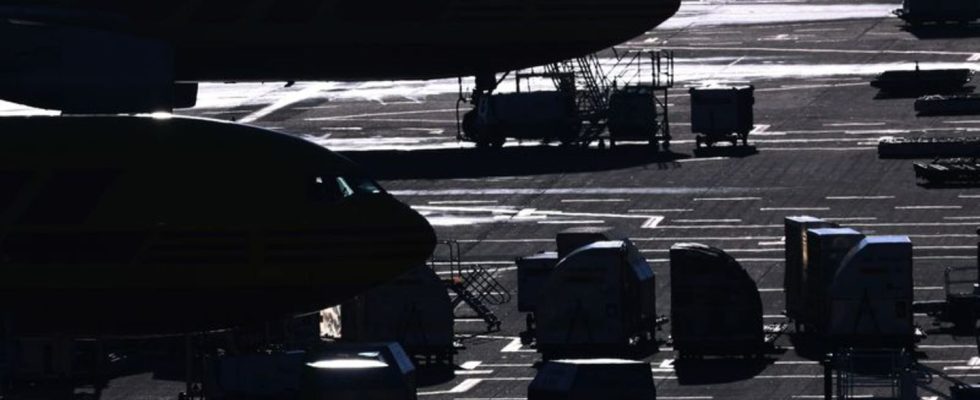Flights
Higher air traffic taxes do not make airlines happy
According to the Barig airline association, Germany as an aviation location is already suffering from extremely high fees at airports and in the airspace. photo
© David Young/dpa
The national kerosene tax is off the table, but the higher aviation tax planned instead is also not met with approval in the industry. Because passengers always pay in the end, demand could weaken.
The aviation industry has criticized the federal government’s plans for a higher ticket tax on passenger flights. “In a European comparison, the burden of taxes and duties on air transport is already high Germany is by far the highest,” a spokeswoman for the Federal Association of the German Aviation Industry (BDL) told the German Press Agency.
The Barig airline association also spoke out against the planned tax increase. Although it is the lesser evil compared to the national kerosene tax, which has been rejected again, it burdens passengers and the industry with further cost increases, said Barig managing director Michael Hoppe. “Higher and higher prices lead to lower demand.” Barig represents all domestic and foreign airlines active in Germany.
Other fees have also risen sharply
Germany as an aviation location is already suffering from extremely high fees at airports and in the airspace, said Hoppe. It is no coincidence that air traffic in Germany is recovering much more slowly than in the rest of Europe. “In other countries, air traffic is seen more as a job and economic engine. This feeling sometimes leaves us in Germany.”
The German industry association BDL warned of further economic consequences: “Renewed increases will cost production in Germany, reduce income taxes and value creation, cause shifts to other hubs and significantly worsen the air transport connections of important economic regions in Germany.” The head of the Lufthansa airline, Jens Ritter, said on the Linkedin platform: “We have to be careful that we don’t become dependent on ourselves. Germany must remain a strong aviation location.”
Easyjet: Many tickets for 2024 have already been sold
Ryanair’s competitor Easyjet also expects higher ticket prices. The German population, which already pays the highest airfares in Europe, is the victim of government policy, explained Germany boss Stephan Erler. Easyjet would have preferred a higher VAT on domestic flights. The airline also criticized the federal government’s short-term actions. A few days before the start of the new year, taxes, duties and fees for departures from German airports are still not bindingly regulated. The majority of the tickets for the coming half-year have already been sold.
The ticket tax introduced in 2011 brought in almost 1.2 billion euros in revenue for the state last year. Depending on the final destination of the flight, between 12.73 euros and 58.06 euros per ticket are due, which the providers usually pass on to the passengers. The federal government now wants to generate additional revenue from the tax to a level that compensates for the waiver of the national kerosene tax. A government spokesman spoke on Tuesday of up to 580 million euros annually. That would be an increase in previous income by around 50 percent.
According to Barig representative Hoppe, the kerosene tax on domestic flights, which was previously considered by the traffic light coalition and has now been canceled, would have led to gross competitive disadvantages for German companies. His association is always committed to fair competition conditions.

